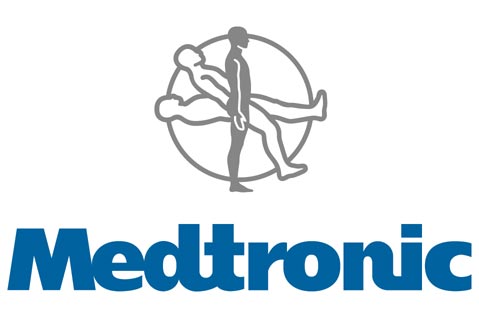
Medtronic (NYSE:MDT) is working with New England hospitals and government health officials to track the movement of surgical medical equipment involved in several cases of possible patient exposure to Creutzfeldt-Jakob disease, a rare and fatal relative to the more commonly known "mad cow" disease.
This morning a spokesperson confirmed that Medtronic tools were involved in 7 out of the suspected 13 total cases of patient exposure to the deadly brain disease.
"Medtronic was recently notified by Catholic Medical Center in New Hampshire that our surgical instruments had been used on a patient who may have had sporadic CJD at the time of surgery," according to a company statement. "Upon notification that our instruments had been used in this case, we followed procedures to quickly track that specific set of instruments and have confirmed they were used in 7 additional cases."
Medtronic equipment was also confirmed in the 1st documented case at Catholic Medical Center in N.H., in which a patient who underwent a procedure with the rented tools later died. Autopsy reports have yet to confirm whether that patient carried the rare and fatal Creutzfeldt-Jakob disease, health officials said.
After Catholic Medical informed the Minn.-based medical device giant about the in-hospital exposure, the company used its own databases to track the contaminated tools, which had already been used on patients at Cape Cod Hospital. All instruments in question are currently being quarantined, and health officials will fully confirm the Creutzfeldt-Jakob diagnosis when autopsy reports from the deceased patient come in.
An autopsy is 1 of the only ways to confirm Creutzfeldt-Jakob, a rare but deadly disease that attacks the brain. Only 4 known cases of Creutzfeldt-Jakob contamination from medical instruments have taken place in the last 40 years, none in the U.S.
Hospitals frequently rent medical equipment directly from the manufacturer, and each time the equipment changes hands it goes through a sterilization procedure. By the time the equipment arrived at Cape Cod Hospital it had undergone 4 different sterilization processes, Dr. Donald Guadagnoli, the hospital’s chief medical officer, told The Boston Globe.
Creutzfeldt-Jakob disease disease attacks the brain through protein-like structures called prions, which are more difficult to completely eradicated during standard hospital sterilization.
Health officials said the risk of further infection is very low because of the number of times the equipment has been sterilized, and because exposed patients underwent spine, not brain surgery. In Mass., the low-risk exposure "is limited to 5 Cape Cod Hospital patients who received procedures between June and August using the same device that was used on the New Hampshire patient," a Mass. health department notice said.

